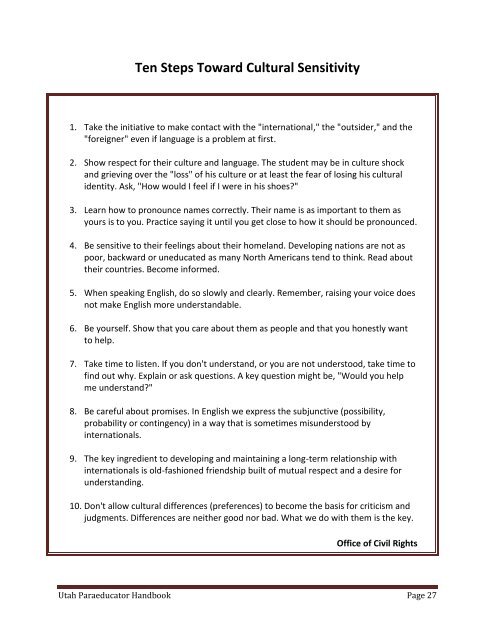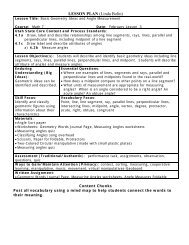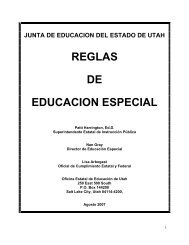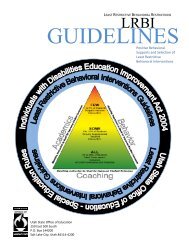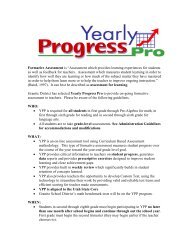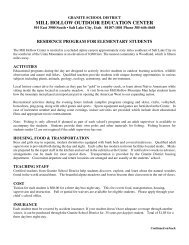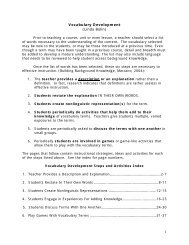Utah Special Education Paraeducator Handbook - Granite School ...
Utah Special Education Paraeducator Handbook - Granite School ...
Utah Special Education Paraeducator Handbook - Granite School ...
You also want an ePaper? Increase the reach of your titles
YUMPU automatically turns print PDFs into web optimized ePapers that Google loves.
Ten Steps Toward Cultural Sensitivity<br />
1. Take the initiative to make contact with the "international," the "outsider," and the<br />
"foreigner" even if language is a problem at first.<br />
2. Show respect for their culture and language. The student may be in culture shock<br />
and grieving over the "loss" of his culture or at least the fear of losing his cultural<br />
identity. Ask, "How would I feel if I were in his shoes?"<br />
3. Learn how to pronounce names correctly. Their name is as important to them as<br />
yours is to you. Practice saying it until you get close to how it should be pronounced.<br />
4. Be sensitive to their feelings about their homeland. Developing nations are not as<br />
poor, backward or uneducated as many North Americans tend to think. Read about<br />
their countries. Become informed.<br />
5. When speaking English, do so slowly and clearly. Remember, raising your voice does<br />
not make English more understandable.<br />
6. Be yourself. Show that you care about them as people and that you honestly want<br />
to help.<br />
7. Take time to listen. If you don't understand, or you are not understood, take time to<br />
find out why. Explain or ask questions. A key question might be, "Would you help<br />
me understand?"<br />
8. Be careful about promises. In English we express the subjunctive (possibility,<br />
probability or contingency) in a way that is sometimes misunderstood by<br />
internationals.<br />
9. The key ingredient to developing and maintaining a long-term relationship with<br />
internationals is old-fashioned friendship built of mutual respect and a desire for<br />
understanding.<br />
10. Don't allow cultural differences (preferences) to become the basis for criticism and<br />
judgments. Differences are neither good nor bad. What we do with them is the key.<br />
Office of Civil Rights<br />
<strong>Utah</strong> <strong>Paraeducator</strong> <strong>Handbook</strong> Page 27


